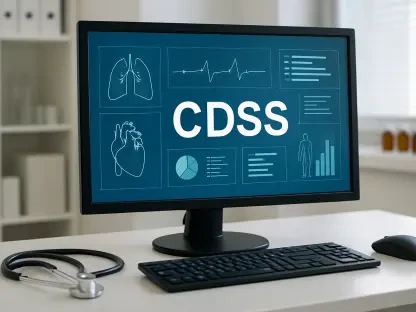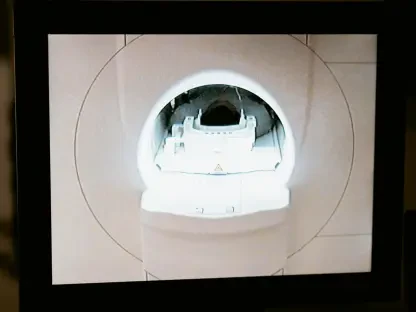Today, we’re thrilled to sit down with James Maitland, a renowned expert in robotics and IoT applications in medicine. With a deep passion for harnessing technology to transform healthcare, James brings a unique perspective on how innovations like artificial intelligence are reshaping the industry. In this conversation, we dive into the ways AI is being integrated into healthcare operations, the critical role of data, tools that enhance patient experiences, the human touch in tech-driven interactions, and the ethical considerations that guide these advancements. Join us as we explore the intersection of technology and care through James’s insights.
How is AI being woven into the fabric of large healthcare organizations to improve their operations?
I’ve seen AI become a game-changer for organizations like major insurers, where it’s deployed in hundreds of ways across the board. It’s not just one tool but a suite of solutions touching everything from streamlining internal processes to making care more affordable and enhancing how members interact with services. For instance, AI can optimize backend operations by predicting workload surges or identifying inefficiencies, while on the member side, it personalizes recommendations and cuts costs. The impact is profound—bridging gaps between data and actionable outcomes to create a smoother, more responsive system.
What role does data play in powering these AI-driven initiatives in healthcare?
Data is essentially the lifeblood of AI in healthcare. It’s the engine that fuels everything. We’re talking about massive pools of information—member claims, digital interactions, call center logs—that connect every part of the system. This data isn’t just numbers; it’s insights into behaviors, needs, and trends. AI thrives on this, using it to predict, personalize, and improve. Without robust, diverse data, AI would be like a car without gas—it just wouldn’t go anywhere. The challenge is ensuring it’s clean and representative, but when done right, it drives monumental change.
Can you share how AI tools are helping patients find the right care providers more easily?
Absolutely, there are innovative tools out there that use AI to match patients with in-network providers tailored to their needs. These platforms, often accessible via apps or websites, factor in preferences like location, language, or even appointment availability. Beyond just matching, they provide cost estimates based on negotiated rates, which can save significant amounts—sometimes over $100 per visit. What’s really powerful is how they also pull in quality metrics about providers, using algorithms that analyze performance data from trusted sources, ensuring patients aren’t just finding a doctor, but the right one for them.
In what ways does AI enhance the experience for both staff and patients during call center interactions?
AI is revolutionizing call centers by taking the grunt work off the staff’s plate. Before, teams struggled with juggling multiple tasks—looking up benefits, typing notes, and trying to connect with the caller. Now, AI can surface relevant solutions or member-specific info in real-time, letting staff focus on the conversation. It even transcribes calls as they happen, so there’s no frantic typing in the background. This creates a more human interaction—patients feel heard, not rushed. It’s a small shift with a big impact, turning a transactional call into a meaningful connection.
How are healthcare organizations ensuring that AI is implemented with ethics and responsibility in mind?
Ethics in AI is non-negotiable, especially in healthcare where lives are at stake. Organizations are building frameworks to tackle biases or errors in data—think rigorous testing and multiple approval layers before any tool goes live. Transparency is key; they strive to make AI decisions explainable, not a black box. Privacy and security of data are paramount, as is accountability—teams are held responsible for how tech is used. Guiding principles often center on fairness and trust, ensuring that AI serves everyone equitably and doesn’t amplify existing disparities.
What is your forecast for the future of AI in healthcare over the next decade?
I’m incredibly optimistic about AI’s trajectory in healthcare. Over the next ten years, I foresee it becoming even more integrated, not just in operational efficiencies or patient tools, but in predictive care—think preventing illnesses before they manifest through hyper-personalized insights. We’ll likely see AI and IoT converge more, with devices feeding real-time data into systems that adapt care plans instantly. The ethical frameworks will mature too, balancing innovation with equity. It’s an exciting time, but the focus must remain on ensuring technology amplifies human care, not replaces it.









